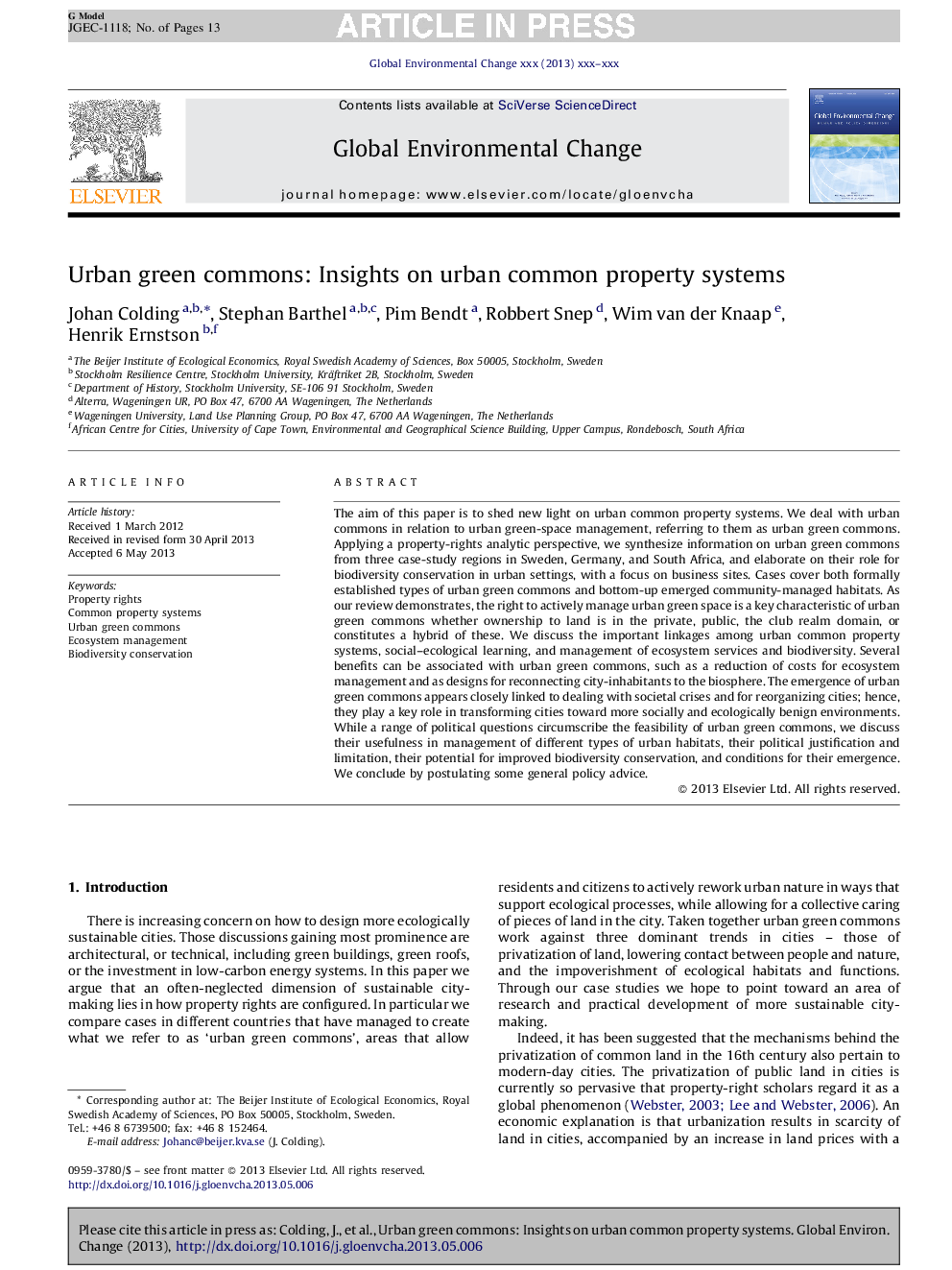| Article ID | Journal | Published Year | Pages | File Type |
|---|---|---|---|---|
| 10505096 | Global Environmental Change | 2013 | 13 Pages |
Abstract
The aim of this paper is to shed new light on urban common property systems. We deal with urban commons in relation to urban green-space management, referring to them as urban green commons. Applying a property-rights analytic perspective, we synthesize information on urban green commons from three case-study regions in Sweden, Germany, and South Africa, and elaborate on their role for biodiversity conservation in urban settings, with a focus on business sites. Cases cover both formally established types of urban green commons and bottom-up emerged community-managed habitats. As our review demonstrates, the right to actively manage urban green space is a key characteristic of urban green commons whether ownership to land is in the private, public, the club realm domain, or constitutes a hybrid of these. We discuss the important linkages among urban common property systems, social-ecological learning, and management of ecosystem services and biodiversity. Several benefits can be associated with urban green commons, such as a reduction of costs for ecosystem management and as designs for reconnecting city-inhabitants to the biosphere. The emergence of urban green commons appears closely linked to dealing with societal crises and for reorganizing cities; hence, they play a key role in transforming cities toward more socially and ecologically benign environments. While a range of political questions circumscribe the feasibility of urban green commons, we discuss their usefulness in management of different types of urban habitats, their political justification and limitation, their potential for improved biodiversity conservation, and conditions for their emergence. We conclude by postulating some general policy advice.
Related Topics
Life Sciences
Environmental Science
Environmental Science (General)
Authors
Johan Colding, Stephan Barthel, Pim Bendt, Robbert Snep, Wim van der Knaap, Henrik Ernstson,
